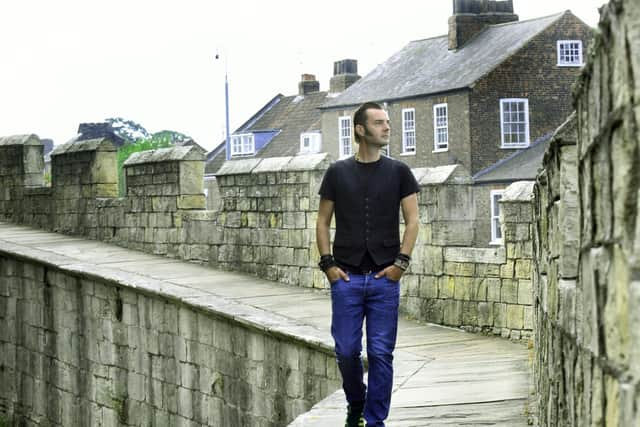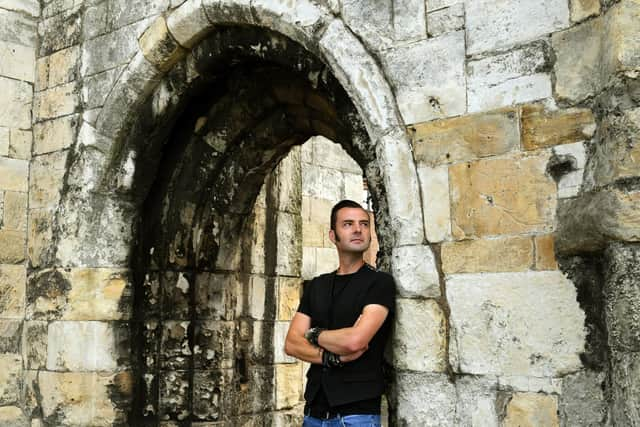York City Walls Festival: How the event is keeping the city's history relevant in a modern age
Having provided sanctuary and safety over centuries of societal change, York' s city walls will once again be at forefront.
The city will be a hive of activity for the fourth York City Walls Festival - with a new head at the helm.
Advertisement
Hide AdAdvertisement
Hide AdBaz Jones, the director for the festival, who studied in the city during the 90s and recently moved back to York, said the city walls, first built around 71AD as Roman defences, are “even more relevant” today for its protective qualities due to the city’s pandemic challenge over the past 18 months.


He said: “It’s interesting to reflect on how the walls have protected York the city over the centuries - the different groups that were in York, Romans, Vikings, medieval times - why walls were important.
“Now they act as a symbol in many respects, but a symbol that is very much relevant today.
“They resonate with protection and security. If you think about what we’ve all been through in York and around the country and around the world in the last 18 months - we’ve all been protecting ourselves and others in the community.”
Advertisement
Hide AdAdvertisement
Hide AdMr Jones, 45, is part of a five-strong team that has organised the festival this year running on August 14-15.


He said ecology will be placed at the forefront of the festival with talks given about what people can see growing in August on the ramparts.
Previously the festival backed a bee initiative to place planters around the centre of the city, while talks are also ongoing with York Council about whether a designated area on the ramparts can be used to plant bulbs.
A large scale grass maze is the centre point for the festival this year near the Red Tower.
Advertisement
Hide AdAdvertisement
Hide AdWall explorer passports will also be given out to people with stamp posts along the wall route, while Civil War clothed figures - who are volunteers from The Yorkshire Battles Trust will be on hand.
While little remains of the original stonework of York’s city walls following Danish destruction, they were revived and restored under the Jacobite Risings and in Victorian times.
Huge numbers of people usually walk the walls every year, and visit the Friends' Fishergate Postern Tower, which was built in 1504 and remained largely untouched over the centuries.
Mr Jones said the long term ambition for the festival is to reconnect with local communities, rather than visitors further afield, for whom the walls form such a part of the city’s identity.
Advertisement
Hide AdAdvertisement
Hide AdHe said: “One thing the pandemic has shown - when we are unexpectedly disassociated from our communities we know the value of them so much more.
“There’s lots of groups in York that never really meet up and link - that is something we would like to facilitate as part of the festival - to bring even more people together with lots of different interests, from lots of different cultural backgrounds.
“That is something that we have realised we can really help with and we’d love to do that taking this forward.”
He added the fate of the walls was also very much in the hands of the next generation.
Advertisement
Hide AdAdvertisement
Hide AdMr Jones said: “We are thinking about the next generation coming through - will they value our history and heritage and things like the walls as much as the generation before?
“Important questions need to be on the table about who's going to be there to look after our ancient monuments and promote them and how they are relevant going into the next 100 years.
“This festival is part of a desire to keep our history relevant in the modern age.”